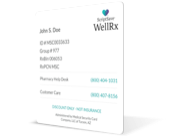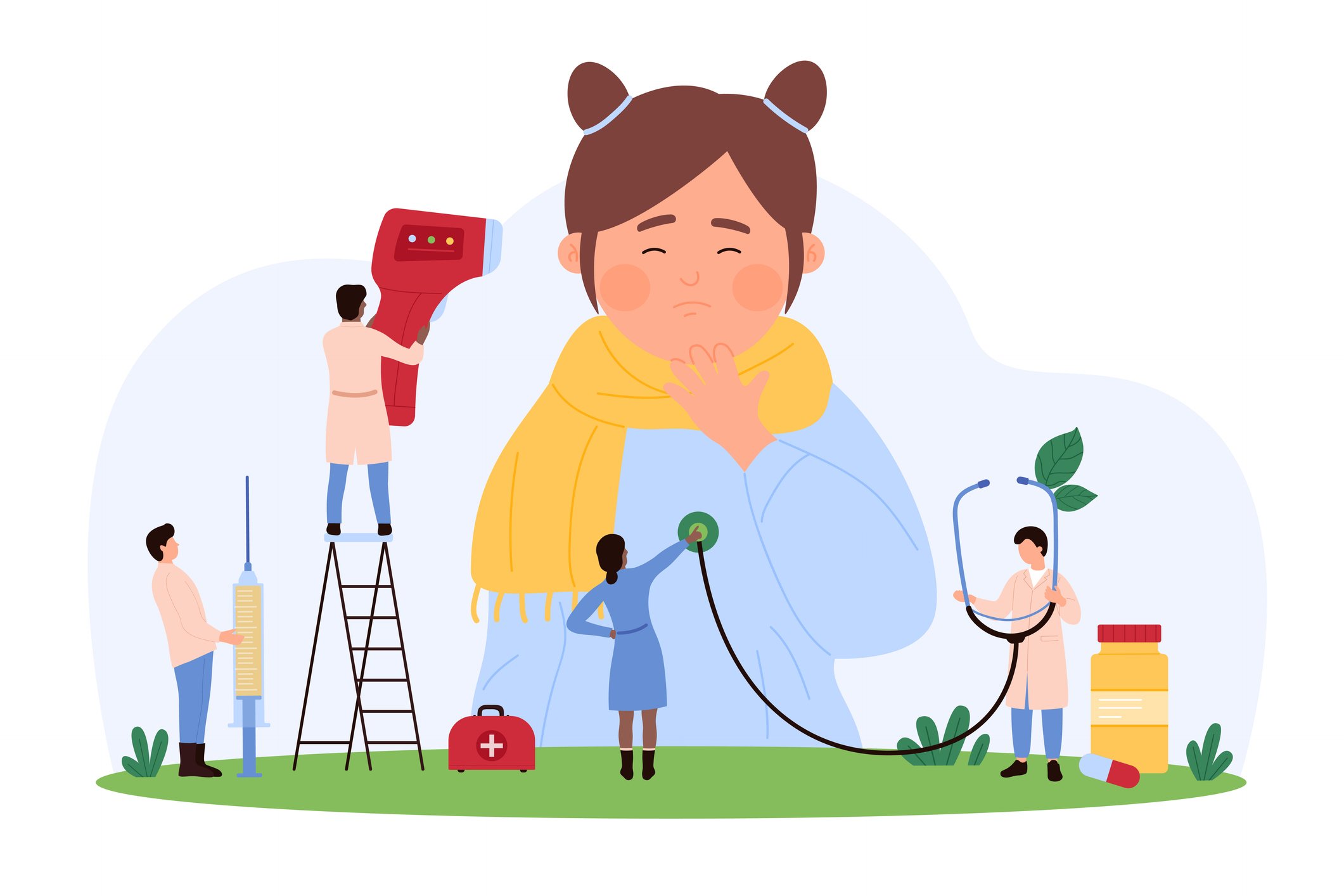Copyright 2025
Medical Security Card Company, LLC
All Rights Reserved
We take the privacy of your personal information seriously. By signing up I agree to WellRx's terms of use and privacy policy.
By Libby Pellegrini MMS, PA-C
April 09, 2025
If you've experienced seasonal allergies, you are familiar with the agony of itchy eyes, runny nose, scratchy throat, or allergic cough. These symptoms can be obnoxious and detract from your quality of life. Treating allergies with medications can help. However, it's essential to understand how allergy medicines work and their potential side effects. Read on to learn more about the best allergy medicine.
Which allergy medicine works best? The best medicine for allergies depends on your specific symptoms and the duration of your condition.
| Medicine | Drug Class | Common Dosage (Adults) | WellRx Savings Card |
| Claritin (loratadine) | Antihistamine | 10 mg | Link Out |
| Allegra (fexofenadine) | Antihistamine | 60 mg | Link Out |
| Zyrtec (cetirizine) | Antihistamine | 10 mg | Link Out |
| Astepro (azalastine) | Nasal antihistamine | 137 mcg spray | Link Out |
| Flonase (fluticasone propionate) | Nasal steroid | 50 mcg spray | Link Out |
| Rhinocort (budesonide) | Nasal steroid | 32 mcg spray | Link Out |
| Afrin (oxymetazoline) | Nasal decongestant | 0.05% spray | Link Out |
| Sudafed (pseudoephedrine) | Decongestant | 30 mg | Link Out |
What allergy medicine is best, and when should you use it? The answer depends on your personal medical history. If you are a known sufferer of seasonal allergies, experts recommend beginning an anti-allergy regimen a couple of weeks before allergy season starts to prevent the development of symptoms. If you suffer from occasional allergies, you should use medications to help control symptoms as they occur.
There are several different types of best allergy medicine for adults, each with its own rationale. The best daily allergy medicine, for example, is not necessarily the most strong allergy medicine of all. To find a good allergy medicine for you, consider your symptoms.
An antihistamine is a medicine that helps with allergic symptoms by preventing the release of a protein known as histamine from the body's mast cells. Histamine promotes allergic symptoms such as itchiness so that an antihistamine can block its effects. Antihistamines are available in pill form, nasal spray, and eye drops. Examples of antihistamine brands include:
A corticosteroid helps with allergic symptoms by dampening your immune system's response to a foreign substance (in this case, an allergen). Corticosteroids for allergies are available in pill or spray form. Examples of corticosteroid brands include:
A decongestant helps with allergic symptoms by reducing the amount of inflammation and fluid within the nasal passageways by constricting blood vessels. This can take effect quickly, but it can be dangerous for people with high blood pressure or heart problems. Decongestants are available in pill or spray form. Examples of decongestant brands include:
The best OTC allergy medicine is not always the strongest over-the-counter allergy medicine. This is because allergy medications often work best when they can be taken over a long time to prevent symptoms and keep allergies under control for long periods. The strongest over-the-counter allergy medications, such as decongestants, may provide quick relief. However, they are not recommended for daily use.
The strongest allergy medicine may be the medicine that controls your symptoms best. For some people, that may be a decongestant medication that takes effect quickly and helps prevent symptoms fast. However, for others, the strongest allergy medicine may be a medicine that they can take every day that helps control the development of their allergy symptoms in the first place.
The fastest-acting allergy medicines, such as nasal decongestants like Afrin and nasal antihistamines like Astepro, take effect within 10 to 15 minutes of application. Oral antihistamines take a little longer to effect fully, about one to two hours. Other medications meant for longer-term use, such as nasal steroids, can take a few days to weeks to start working.
It's essential to monitor how frequently you take allergy medications. Some oral antihistamines, such as Claritin and Allegra, are safe to take daily, as are nasal steroid sprays. However, other drugs, such as decongestants, should only be taken as needed. Check with your clinician and consult medication instructions to ensure you take any medication safely.
Beyond over-the-counter and prescription medications, natural allergy remedies can also relieve obnoxious symptoms. These natural methods include:
The best allergy relief medicine for you depends on your medical history and specific symptoms. Some guidelines to follow when trying to choose a medicine include:
| If you are experiencing allergy symptoms, a prescription medicine may be needed. Get your free WellRX account and start saving on your medications. The average participant sees up to 80% savings* on prescription medications. |
*DISCOUNT ONLY – NOT INSURANCE. The program is administered by Medical Security Card Company, LLC.
A nasal spray is the best allergy medicine for a runny nose. For immediate relief, try a nasal decongestant such as Afrin. However, do not use it for more than 3-5 days. A nasal antihistamine or nasal steroid can provide the most long-lasting relief.
Consult with your clinician for severe allergies. A combination of medications within different medication categories can help you achieve the most symptomatic relief. If this isn't helping enough or you are experiencing too many side effects, consider a course of allergy shots.
Try an oral antihistamine combined with a nasal steroid spray for a runny nose and sneezing. If you know you will be coming into contact with an allergen, it's best to start this regimen ahead of time to reduce the development of symptoms.
Several medication classes may produce the best allergy pills for stuffy noses or other allergic symptoms, including antihistamines, decongestants, and mast cell stabilizers. In pill form, these medications can help with symptoms that occur in multiple places, such as the eyes, throat, and nose.
The best generic allergy medicine is the one that provides you with the most relief. This can vary from person to person, and even from one allergy season to another. If you find that one allergy medicine helps control your symptoms better than another, that's what you should use.
Experts haven't identified the strongest over-the-counter antihistamine. However, first-generation antihistamines, such as Benadryl, tend to have more systemic side effects, such as drowsiness. Individuals vary on which antihistamine works best for them, so if one seems more effective for you than another, that's the one you should use.
The best seasonal allergy medicine depends on your symptoms. Try an oral antihistamine if a systemic medicine is needed to help control a host of symptoms, including itchy eyes, runny nose, scratchy throat, and cough. A steroid spray may be the best allergy relief medicine if your symptoms are limited to nasal congestion and runny nose.
An antihistamine medication is often the best defense against an itchy throat. Antihistamines can help dampen the body's response to allergens by limiting histamine release from mast cells. This reduces the amount of histamine protein circulating in the blood, which can reduce itchiness.
The best allergy medicine for itchy skin is likely an antihistamine. Itchiness is often caused by the release of histamine, a protein released by the mast cells in response to an allergen. It's best to take an antihistamine before encountering a known allergen to prevent the itchiness cycle.
To counteract your body's response to pollen, you may want to consider determining the start of allergy season in advance. High pollen counts fluctuate in communities by time of year, so knowing when to expect allergy season to start can help you get ahead of your symptoms and start taking an antihistamine medication in advance.
An allergy cough may be improved by taking an oral antihistamine medication. If you know you have seasonal allergies, you can reduce your chance of developing an allergic cough by starting a daily antihistamine before allergy season.
An oral antihistamine can be more effective than other medications for treating a sore throat caused by inflammation and irritation. Additionally, an anti-inflammatory medication such as ibuprofen can help with sore throat and safely be combined with an antihistamine.
If you have heart disease or high blood pressure, it's important to stick to an allergy medication that does not contain decongestants. Safe medications include oral antihistamines such as loratadine or fexofenadine. Make sure not to take the formulation of these medications with a "D" added to the name, as this indicates the presence of a decongestant.
Yes, you may take two types of allergy pills together. Some allergy pills are sold in combination form. For example, oral antihistamines are often combined with oral decongestants and denoted with a "D," such as Claritin-D. However, it's important not to combine medications beyond the directions, as taking too much of either medication can be dangerous.
Because many allergy medications have a side effect profile, it's essential to consider how to provide the best possible relief for kids without unwanted effects. A local agent, such as a nasal spray, is often the safest option. Experts also believe nasal sprays may be more effective.
Emergency allergy medicine is used in cases of anaphylaxis, a severe response to an allergen that can cause throat swelling, shock, and even death. In the case of an emergent allergic reaction, clinicians use epinephrine, which is available by prescription in Epi-Pen form.
https://www.mayoclinic.org/diseases-conditions/allergies/in-depth/allergy-medications/art-20047403
https://acaai.org/allergies/allergies-101/facts-stats/
https://acaai.org/allergies/management-treatment/

For your convenience, use the ScriptSave® WellRx mobile app. Now savings are well in hand, right at the pharmacy counter. Save on your family's prescription medicines.
Learn More
Your choice. Get a ScriptSave WellRx Savings Card. Or Download the free mobile app from the App Store or Google Play Store
Get A Card
ScriptSave WellRx Grocery Guidance leverages leading-edge nutritional data science to help you know which food products on your grocery store shelf are truly good for YOU.
Healthy Foods For YouTags:

April 09, 2025

April 09, 2025

April 09, 2025
You need to log into the site to use this feature
This feature requires registration. Sign up or log in to your free WellRx account to gain access to this and other tools to help make managing your medications and wellness easier.
Benefits Include:
 Store & manage your medication list
Store & manage your medication list
 Medication pricing updates
Medication pricing updates
 Medication information
Medication information
 Pill & refill reminders
Pill & refill reminders
 Medication journal & mood log
Medication journal & mood log
This feature requires registration. Sign up or log in to your free WellRx account to gain access to this and other tools to help make managing your medications and wellness easier.
Benefits Include:
 Store & manage your medication list
Store & manage your medication list
 Medication pricing updates
Medication pricing updates
 Medication information
Medication information
 Pill & refill reminders
Pill & refill reminders
 Medication journal & mood log
Medication journal & mood log
You will be redirected to your program in 5 seconds.
Our Terms and Conditions and Privacy Policy have recently been updated.
By declining you will be logged out of your account